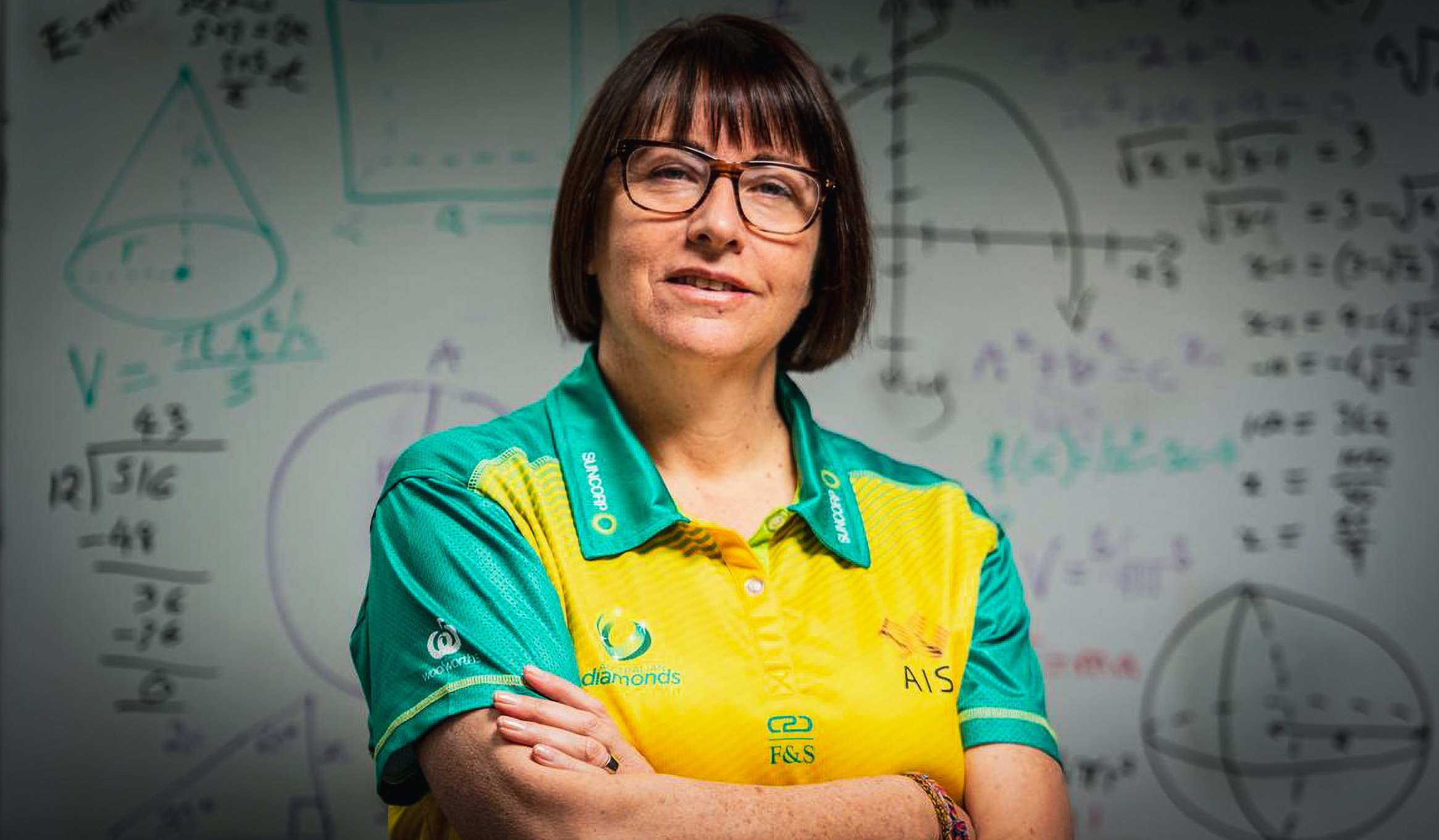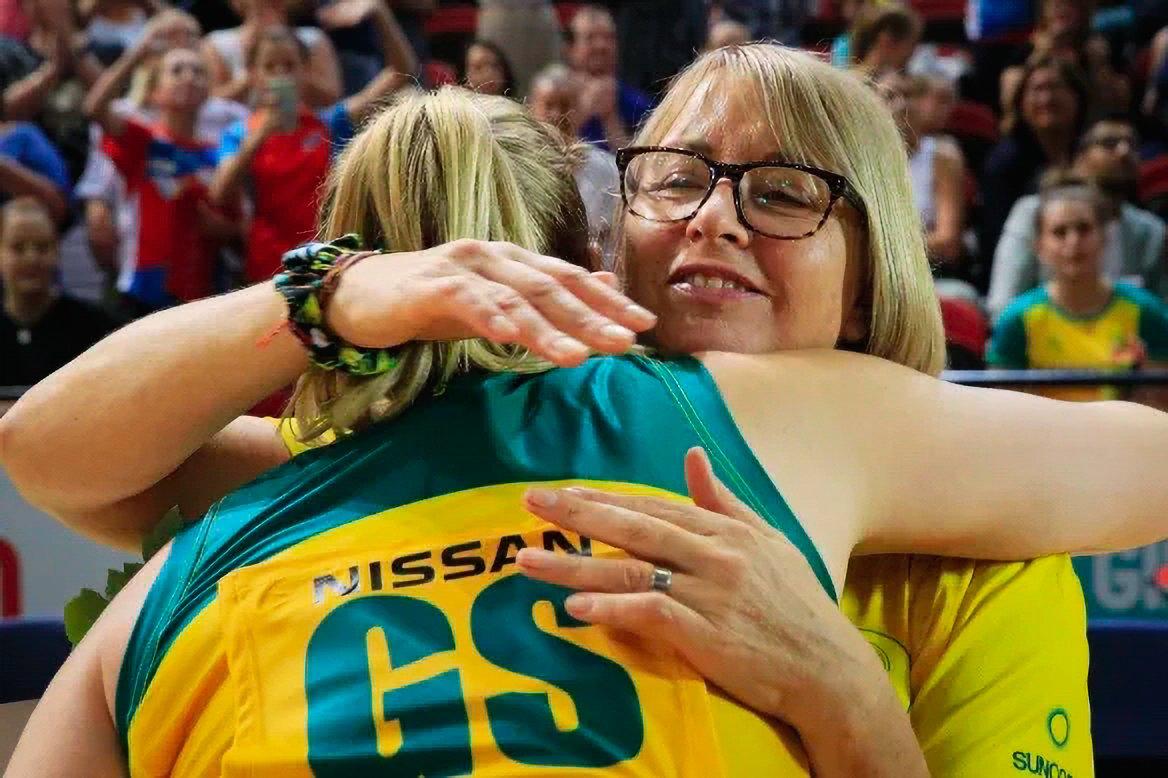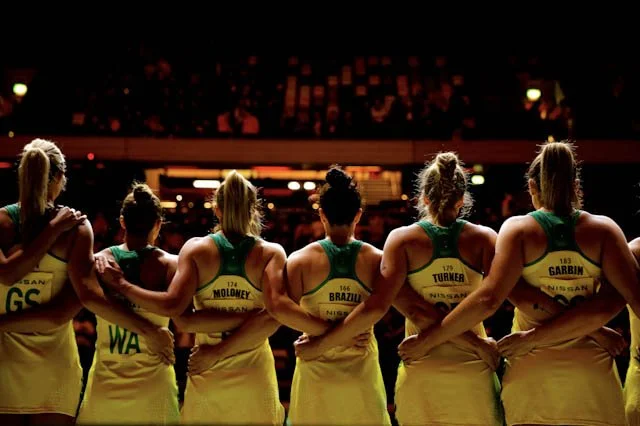
Episode #024
Lisa alexander
‘Sisters in arms’

Episode #024
Lisa alexander
‘Sisters in arms’
Listen and Subscribe
Sisters in arms
The moments that meet you where you are but never leave you where they found you.
All solutions are temporary—no matter how good your culture and strategy seem at any given time, the competitive response will eventually come. But Lisa Alexander's story challenges this rule: when culture emerges authentically from shared values and genuine connection, its most essential elements can endure.
In 'Legacy', one of the most influential sport and culture books ever written, James Kerr describes how the All Blacks don't just implement values—they carve them into the wall. Great sporting cultures, such as the Sydney Swans' 'Bloods' culture and the Diamonds' 'Sisters in Arms', share this quality: they become so deeply embedded in the organisation's DNA that they transcend individual tenures, coaching changes, and competitive cycles.
If enduring cultures are carved into organisational walls, they're built by leaders who first learned to carve meaning from their own experiences.
Lisa's journey from that eighteen-year-old with a diary shows how personal reflection becomes the foundation for cultural legacy.
Her story began at eighteen, pen in hand, as she journaled through new motherhood while pursuing her teaching degree. The former Australian Diamonds coach, whose nine-year tenure delivered an 81% win rate, would one day help coach Australia's national netball team to sustained excellence.
But the real revelation wasn't in the wins. It was in the culture she led the creation of—one that continues today, long after her tenure ended.
The power of naming
"It took Laura, one of our younger members at the time in the squad, to say, how about when we're standing on the side of the court, and we're all tearing up, and we've got our arms around each other, it reminds me of we're sisters in arms," Lisa recalls. "It was one of those aha moments that was so powerful."
The words came from Laura Geitz, who would go on to captain the Diamonds herself. But in that moment, she helped create something that would resonate through Australian sport for years to come. The Sisters in Arms culture wasn't manufactured by leadership—it emerged organically from helping the team name what was already happening.
"It connected to the past. It also gave the players the understanding that, yes, this is your time now, but we want to make the program in a way that everyone's proud of," Lisa explains. When groups give authentic connection a name, they give it life beyond any individual tenure.
The courage to be different
Lisa's journey to the Diamonds was unconventional—the first coach who hadn't played for Australia. But then, her entire path had been about navigating uncharted territory.
"I always wanted children anyway," she reflects on becoming a mother at eighteen. "I wouldn't change things for the world... it certainly helped me be a better leader, I think. I've been able to navigate the family work balance probably better than a lot of other people because I had to do it right from the start."
Her experience taught her how to navigate competing priorities without compromising on what truly mattered. These lessons informed how she would later lead the creation of space for others to bring their whole selves to their roles.
Conversations as currency
What emerges throughout Lisa's story is her understanding that conversations are the currency of authentic culture. Not surface-level check-ins, but difficult, honest exchanges that create real connection.
There's a perception that successful cultures exist on some elevated stratum where conflict and disagreement don't happen. This is a myth. Sisters in Arms endured precisely because it was built on strong personal bonds and trust, such that 'task conflict' rarely became 'relationship conflict', and when it did, it was sorted quickly.
Culture isn't some form of endowment you receive; it is something you have to work for. As Lisa puts it: "We will talk about it. We'll be upfront about it, because that's going to be the thing that challenges us to continue to get better."
She tells of confronting team dynamics, facilitating feedback sessions where players could challenge her leadership. These weren't comfortable conversations, but they were necessary ones that built something lasting.
"Sometimes you have to have confrontation, and you have to have some hard discussions to get excellence," she says. "I just won't tolerate bullshit... because we had a strong enough relationship, she took it on board."
What endures
Strategies change. Personnel change. Even winning streaks end. But what Lisa led the creation of Sisters in Arms transcends the temporary nature of most organisational solutions because it was built on authentic human connection and shared meaning.
Lisa was navigating one of the most difficult balances that high-performance, results-based environments face: creating an authentic, people-first culture built on deep care while embedding the behaviours that maximise the prospect of success. In many ways, Sisters in Arms was before its time, solving challenges that today's leaders are only now recognising as fundamental to sustainable performance.
"I have always been one for around the possibility thinking," she reflects. The Sisters in Arms culture thrives today. Current players still embrace it, coaches continue to build upon it, and it remains the cornerstone of how the Diamonds operate—not because it was imposed from above, but because it emerged from genuine collaboration.
The weight Lisa carries includes heartbreaking one-goal losses and ultimately having her contract not renewed despite sustained success. But it also includes the deep satisfaction of leading the creation of something that outlasts any individual tenure.
The 'Arena' continues
Lisa's journey shows us that while all solutions may be temporary, authentic culture can endure when it's co-created rather than imposed. From that eighteen-year-old with pen and paper, learning to balance impossible demands whilst refusing to compromise on what mattered most, she was already practising the collaborative leadership that would help change Australian sport.
The Sisters in Arms weren't just teammates. They were a living example of what's possible when leadership creates conditions for authentic culture to emerge—culture that transcends tactics, personnel changes, and continues to guide the leaders who came after.
Notebook ready.
Play on!
Cameron Schwab
Video Shorts - Some key lessons from the podcast
Leadership is the difference maker
To embrace the expectations of your role, welcome the responsibilities and pressures as a privilege, a right you have earned, and be energised by the opportunities they provide.







